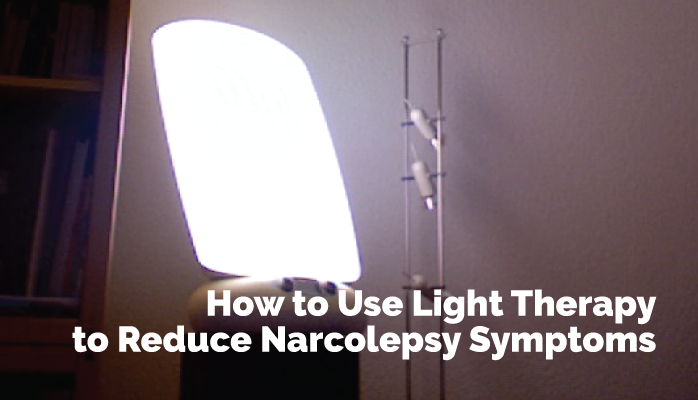
What is Narcolepsy?
Narcolepsy is a sleep condition characterized by the sudden urge to sleep at inappropriate times. Accompanying this may be odd occurrences like sudden loss of muscle tone in a specific part of the body or the entire body, and sleep paralysis. For those that have a diagnosis, managing narcolepsy can be challenging. In this article we will explore a natural technique - light therapy - for helping to regulate narcolepsy symptoms.
Primary Narcolepsy Symptoms
The primary symptoms of narcolepsy include:
- Sleep attacks - the sudden urge to sleep (in uncommon cases can make someone fall asleep right away)
- Cataplexy - sudden loss of muscle tone, often in response to strong emotions
- Sleep paralysis - temporary inability to move right before falling asleep or just after waking up; can last a few seconds to a few minutes
- Hallucinations - half the people who have narcolepsy experience vivid hallucinations right before sleep or right after waking up
- Sleep Deprivation - narcolepsy causes irregular sleep patterns that prevent getting good rest
Common Treatments for Narcolepsy Symptoms
Common treatments for Narcolepsy often involve a lot of medications, and unfortunately medications don’t always affect people in the same way, meaning that success of these medications can vary wildly.
Beyond medications, people with Narcolepsy self-manage throughout their day. This requires additional measures and prohibitions that people without Narcolepsy don’t have to be concerned about. For example:
- Managing daily life will require “work around”, such as being able to take a nap at work if needed
- Coffee is a double edged sword, helping through sleep attacks but further inhibiting normalizing sleeping patterns
- Certain activities will be off limits
- Certain jobs will be off limits, such as surgeons, heavy equipment operators, or drivers
- Sleep partners should be aware of hallucinations and sleep paralysis, which can be scary for them if they don’t know how to identify and react to it
- For Cataplexy, Narcoleptics may need to practice exercises to avoid strong emotional reactions, such as meditation, yoga, breathing techniques, etc.
A diagnosis requires a sleep study.
Steps to Use Light Therapy to Help Narcolepsy Symptoms
People with Narcolepsy are highly susceptible to signals and triggers from both the internal and external environment. Internal triggers tend to be hormones, foods, and feelings. External triggers tend to be changes in the environment, particularly light.
Regulating external changes can help diminish the severity or frequency of Narcolepsy symptoms. Light therapy is an extremely effective form of this, and can make a marked difference. Here are the steps to do it:
- Track your sleep to get a baseline and understanding of your schedule
This can be done manually or with the assistance of technology, such as a fitness watch, smart phone app, or activity tracker.
- Plan a sleep schedule using your baseline to optimize your primary period of long sleep
A sleep schedule should include your bed time, your wake up time, and your nap time (if relevant) during the day. Again, it should complement and regularize your existing sleep habit.
- During the day, maintain constant light exposure with natural light and light therapy lamps
Light therapy lamps are inexpensive and can do a great job of simulating sunlight.
- Create an ideal sleeping environment
Ideal sleeping environments will help contrast your wake hours with sleeping hours, ensuring that you are maximizing natural biological reactions to changes in light (i.e., melatonin)
Ideal sleeping environments include the following:
- Dark – use blackout curtains and ensure there are no unnatural sources of light in the room
- Cool room – ensure that your room is ~65 degrees
- No blue lights (electronics) in the hour before bed
- If it’s not sex or sleep, remove it from your room
- Ensure room is tidy
- Ensure room has nice smell
- Get a comfortable bed and pillow
This strategy is about setting yourself up for maximum sleep routine habits. It won’t eliminate your narcolepsy symptoms, but it may help quite a bit.
If you are worried that you may be dealing with narcolepsy please take this online sleep test. If you are already suffering from it, please contact us for expert consultation.

